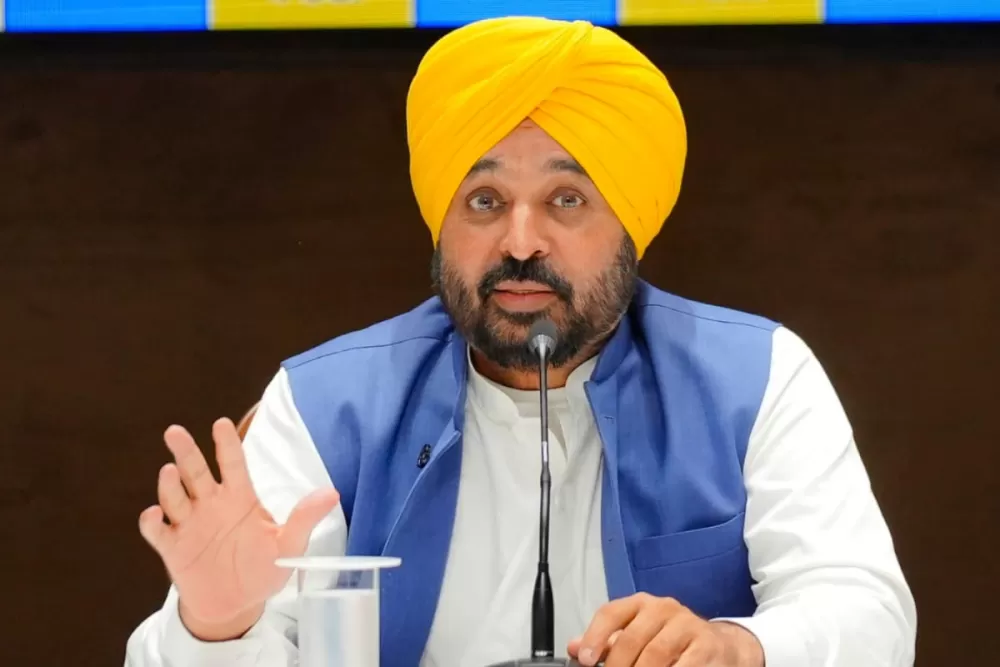When Blame Lingers: Punjab CM Fights Back on Stubble Burning Accusations
Share- Nishadil
- October 29, 2025
- 0 Comments
- 3 minutes read
- 28 Views

Not Just Us: Punjab CM Mann Challenges Delhi's Stubble Blame
Punjab Chief Minister Bhagwant Mann has forcefully pushed back against claims that his state's farmers are solely responsible for Delhi's alarming air pollution, suggesting the issue is far more complex than a simple blame game. He contends other regions contribute significantly, urging a broader perspective.
Ah, the annual ritual. As winter creeps in and the air in India's capital city, Delhi, thickens into a rather alarming, almost apocalyptic haze, the finger-pointing begins. And for years now, it seems to settle squarely, perhaps a touch too conveniently, on the fields of Punjab. But hold on a minute, says Punjab Chief Minister Bhagwant Mann, pushing back with some serious vigor. He’s tired, it seems, of his state’s farmers bearing the brunt of the blame for what he insists is a much, much larger, more convoluted issue.
In a rather candid moment, Mann didn’t mince words, squarely blaming — or at least, including — farmers from neighboring Haryana and Uttar Pradesh for their role in the stubble burning conundrum. It’s not just Punjab, he argued, not by a long shot. He even dug up a 2021 study, if you can believe it, a rather important piece of research, suggesting quite clearly that smoke from these other states, yes, it too makes a significant, unwelcome journey to Delhi’s skies. This isn't just hearsay; it's data, you could say, right there for anyone to see.
Mann's frustrations, honestly, felt palpable. He specifically called out Delhi Chief Minister Arvind Kejriwal, questioning why those very studies – studies that apparently detail this multi-state contribution – haven't spurred more comprehensive action. Instead, he implied, the default seems to be this relentless, rather singular focus on Punjab. "Why aren't you looking at the bigger picture, Chief Minister?" one might imagine Mann thinking, if not outright saying. It’s a classic political spat, of course, but one with genuinely grave environmental implications.
Yet, it’s not all just accusations and defenses from Mann’s corner. He was quick to point out, and rightly so, that his government isn’t simply standing idly by. Oh no, efforts are indeed underway to rein in stubble burning across Punjab. The number of machines provided to farmers, those crucial tools for managing crop residue without resorting to fire, has seen a substantial boost. We're talking about a significant scale-up: 1.20 lakh machines this year alone, a hefty jump from the nearly 90,000 distributed just last year. It shows, at least in some measure, a commitment.
And let's be fair for a moment, let's understand the farmer’s dilemma. There’s this incredibly tight window, you see, between harvesting the paddy — that vital rice crop — and needing to sow wheat. It’s a relentless agricultural cycle, and honestly, sometimes burning the stubble feels like the only viable, quick-fix solution when alternatives aren't readily available or affordable. It's not malicious intent, perhaps, but a symptom of systemic pressures and, dare I say, inadequate infrastructure for proper waste management.
So, what we have here is more than just smoke; it’s a murky cloud of politics, economics, and environmental science. Punjab’s Chief Minister is, in essence, demanding a more holistic, equitable approach to solving Delhi's perennial air quality crisis. Because, in truth, blaming just one piece of a complex puzzle rarely, if ever, leads to a truly sustainable solution. And that, really, is the crux of it all, isn't it?
Disclaimer: This article was generated in part using artificial intelligence and may contain errors or omissions. The content is provided for informational purposes only and does not constitute professional advice. We makes no representations or warranties regarding its accuracy, completeness, or reliability. Readers are advised to verify the information independently before relying on







